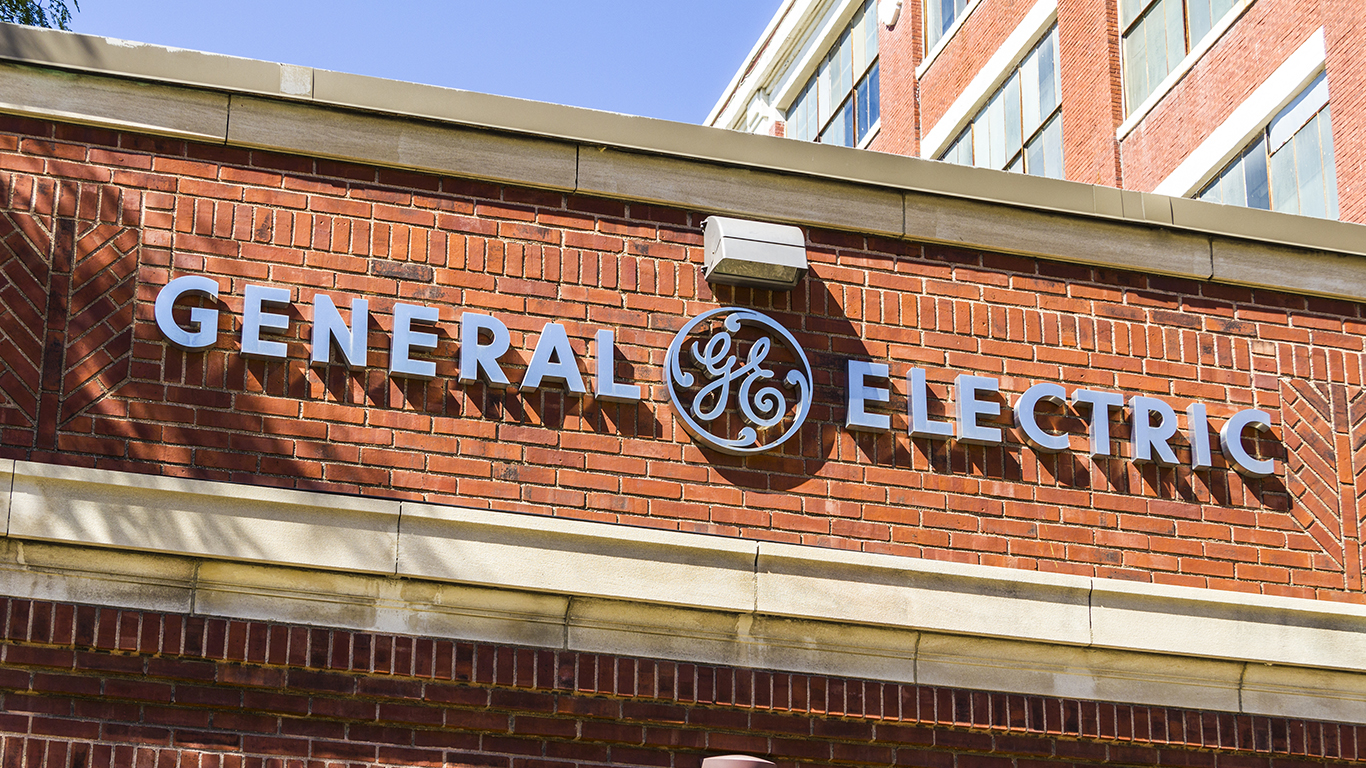
General Electric Co. (NYSE: GE) reported first-quarter 2019 results before markets opened Wednesday. The conglomerate reported adjusted earnings per share (EPS) of $0.17 on revenues of $28.83 billion. In the same period a year ago, GE reported adjusted EPS of $0.18 on revenues of $29.16 billion. First-quarter results also compare to the consensus estimates for EPS of $0.12 on revenues of $28.68 billion.
[in-text-ad]
On a GAAP basis, GE posted a net loss of $0.03 per share, including its GE Capital business. The Industrial business accounted for $0.02 of the per-share loss.
The company also announced that Chief Financial Officer Jamie S. Miller will be leaving the company after a transition period during which GE will conduct a search for a replacement.
Board Chair and CEO H. Lawrence Culp Jr. said:
Our top-line growth was solid, and Power made meaningful improvements on fixed cost reduction and project execution. Margins contracted due to declines in Power, Renewable Energy, and to a lesser extent Aviation, with the first half of 2019 in line with our full-year outlook. … Due to improvements at Power, lower restructuring and interest, higher earnings, and better visibility at the half, we are raising our full-year outlook for Industrial segment organic revenues, adjusted EPS, and Industrial free cash flows, and we are holding our margin guidance.
GE raised its outlook for revenue growth in its Industrial segment from a prior range of low- to mid-single digits to mid-single digits and its full-year adjusted EPS range from a prior range of $0.50 to $0.60 to a new one of $0.55 to $0.65. The Industrial segment’s free cash flow estimate was raised from a prior range of negative $2 billion to flat to a new range of negative $1 billion to positive $1 billion. Margin expansion in the Industrial segment remained unchanged at flat to up approximately 100 basis points. Estimated restructuring expenses and restructuring cash were both decreased.
The Power segment posted second-quarter revenue of $4.92 billion, down 22% year over year. The segment posted a net profit of $117 million, down 71% compared to the second quarter of 2018. Gas Power revenues and margins fell primarily due to lower volume and mix the company said.
The Renewable Energy segment reported quarterly revenue of $3.63 billion, up 26%, but a net loss of $184 million, compared to a net profit of $85 million a year ago. The company said the loss was driven by joint venture consolidation, higher losses on legacy contracts, and increased investment in research and development, among other things.
The Oil & Gas segment reported revenue of $5.95 billion, up 7% and profit of $217 million, down 2%. Baker Hughes, a GE Co. (NYSE: BHGE) contributed approximately $94 million in cash to GE’s quarterly profit.
The Aviation segment saw a revenue boost of 5% to $7.88 billion and profit of $1.39 billion, down 6% year over year. Healthcare revenue dipped 1% to $4.93 billion while profit rose by 3% to $958 million.
The good news for GE is that investors liked what they heard and pushed the stock up by around 3.5% at $10.87 in Wednesday’s premarket trading. Shares closed up about 1.4% on Tuesday, at $10.52 in a 52-week range of $6.40 to $13.25. The consensus 12-month price target on the stock is $10.78.
Are You Ahead, or Behind on Retirement? (sponsor)
If you’re one of the over 4 Million Americans set to retire this year, you may want to pay attention.
Finding a financial advisor who puts your interest first can be the difference between a rich retirement and barely getting by, and today it’s easier than ever. SmartAsset’s free tool matches you with up to three fiduciary financial advisors that serve your area in minutes. Each advisor has been carefully vetted, and must act in your best interests. Start your search now.
Don’t waste another minute; get started right here and help your retirement dreams become a retirement reality.
Thank you for reading! Have some feedback for us?
Contact the 24/7 Wall St. editorial team.




